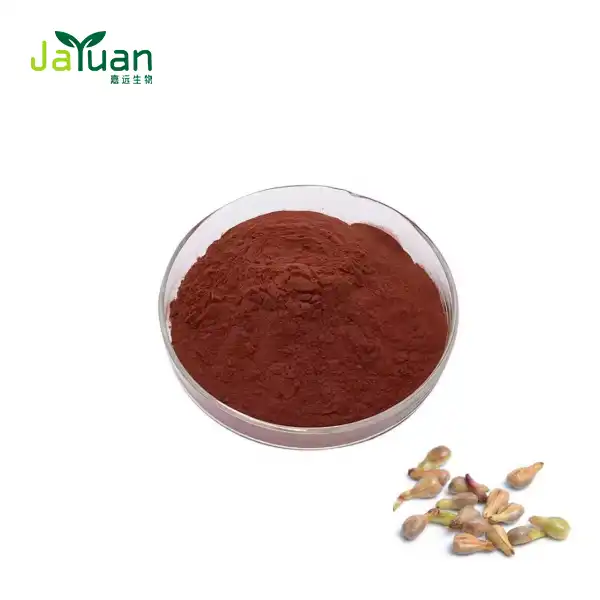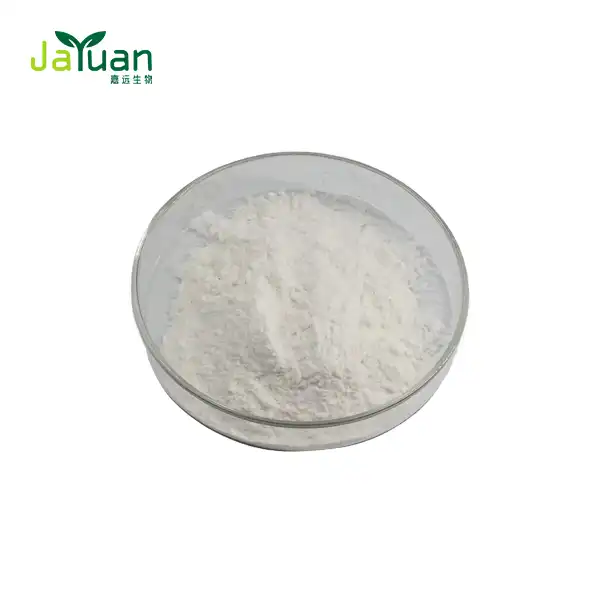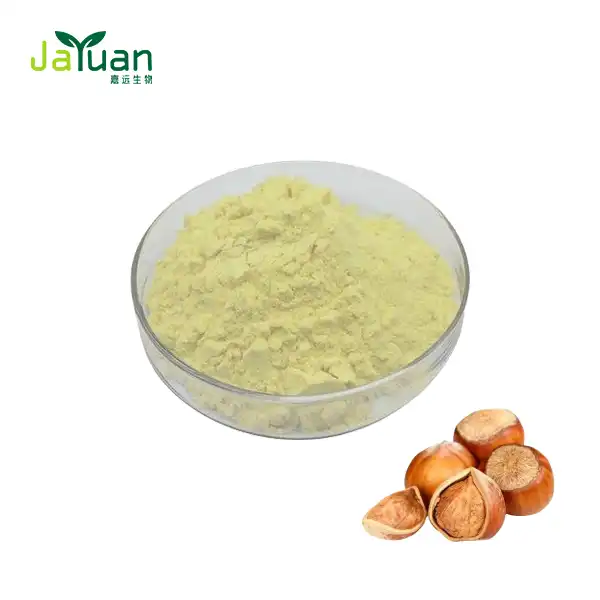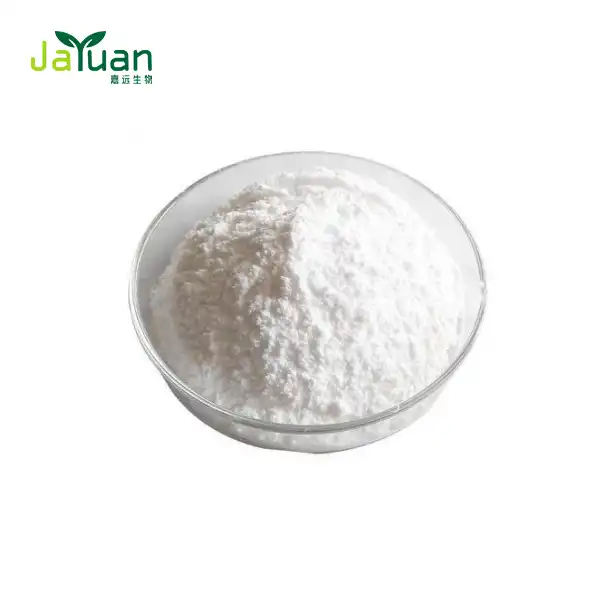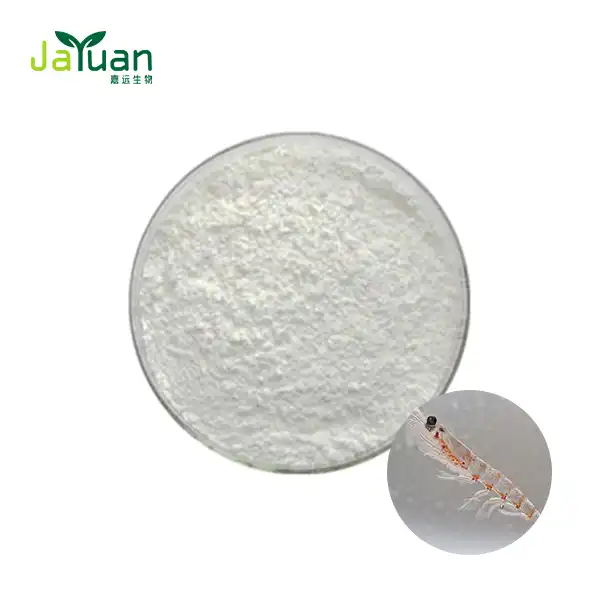What Is the Amino Acid Composition of Oyster Peptide?
Oyster peptides have garnered significant attention in the world of health supplements due to their unique nutritional profile. These peptides, derived from oysters, are packed with a diverse array of amino acids that contribute to their potential health benefits. In this comprehensive guide, we'll delve into the amino acid composition of oyster peptide, exploring its essential and non-essential amino acids, specific amino acid concentrations, and how it compares to other marine-based sources.
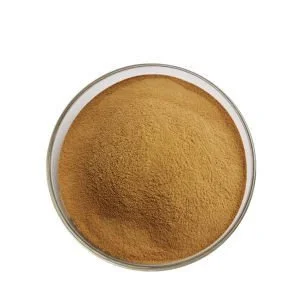
Essential vs. non-essential amino acids in oyster peptides
Oyster peptides contain a balanced mix of both essential and non-essential amino acids. Essential amino acids are those that the human body cannot produce on its own and must be obtained through diet. Non-essential amino acids, on the other hand, can be synthesized by the body but are also present in many protein sources.
The essential amino acids found in oyster peptide powder include:
- Lysine
- Methionine
- Threonine
- Phenylalanine
- Tryptophan
- Valine
- Leucine
- Isoleucine
- Histidine
These essential amino acids play crucial roles in various bodily functions, including protein synthesis, enzyme production, and neurotransmitter regulation. Their presence in oyster peptides makes this supplement a valuable source of these vital nutrients.
Non-essential amino acids found in oyster peptides include:
- Glutamic acid
- Aspartic acid
- Glycine
- Alanine
- Serine
- Proline
- Tyrosine
- Arginine
- Cysteine
While the body can produce these amino acids, their presence in oyster peptides can help support various physiological processes and may contribute to the overall health benefits associated with this supplement.
Does oyster peptide contain high levels of glycine and arginine?
Glycine and arginine are two amino acids that have garnered particular interest in the context of oyster peptides. Both of these amino acids are indeed present in oyster peptide compositions, but their concentrations can vary depending on the specific extraction and processing methods used.
Glycine, the simplest amino acid, is known for its role in collagen synthesis and as a neurotransmitter precursor. It's also involved in the production of important molecules like glutathione and creatine. Oyster peptides do contain glycine, although the exact levels can vary. Some studies have shown that glycine makes up a significant portion of the amino acid profile in oyster extracts, which may contribute to their potential benefits for skin health and joint support.
Arginine, a conditionally essential amino acid, is another component found in oyster peptides. This amino acid is crucial for various bodily functions, including:
- Nitric oxide production
- Protein synthesis
- Wound healing
- Hormone secretion
While oyster peptides do contain arginine, the levels may not be as high as some other amino acids. However, the presence of arginine in combination with other amino acids in oyster peptides may contribute to their overall nutritional value and potential health benefits.
It's worth noting that the exact concentrations of glycine, arginine, and other amino acids can vary depending on factors such as the species of oyster used, harvesting conditions, and processing methods. Therefore, it's essential to consider the specific product and its manufacturing process when evaluating the amino acid profile of oyster peptides.
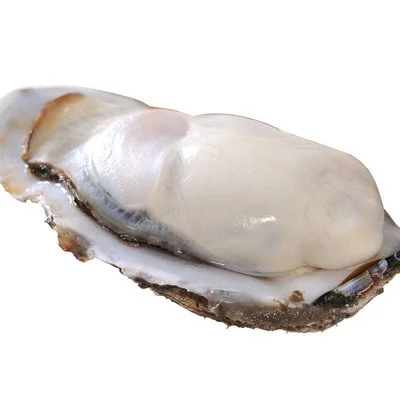
How does oyster peptide compare to other marine-based amino acid sources?
When comparing oyster peptide powder to other marine-based amino acid sources, several factors come into play. While all marine sources tend to offer a rich array of amino acids, oyster peptides have some unique characteristics that set them apart.
Compared to fish protein sources:
- Oyster peptides generally have a higher concentration of taurine, an amino acid derivative known for its potential cardiovascular and neurological benefits.
- They also tend to have a more balanced ratio of essential to non-essential amino acids compared to some fish proteins.
- Oyster peptides may have higher levels of zinc and other trace minerals, which can complement their amino acid profile.
In comparison to other shellfish sources:
- Oyster peptides often have a higher glycine content than many other shellfish proteins, which may contribute to their potential skin and joint health benefits.
- They typically contain a broader spectrum of amino acids compared to single-species shellfish sources like shrimp or crab protein.
When compared to seaweed or algae-based proteins:
- Oyster peptides generally offer a more complete essential amino acid profile.
- They tend to have higher concentrations of sulfur-containing amino acids like methionine and cysteine, which are important for various metabolic processes.
It's important to note that while oyster peptides offer a unique and beneficial amino acid profile, they should not be considered superior to all other marine-based sources. Each source has its own strengths and potential benefits. The choice between different marine protein sources often depends on individual nutritional needs, dietary preferences, and specific health goals.
Moreover, the bioavailability of amino acids in oyster peptides is generally high due to their peptide form. This means that the body can easily absorb and utilize these amino acids, potentially making them more effective than some other protein sources.
In conclusion, the amino acid composition of oyster peptides is diverse and balanced, offering a unique blend of essential and non-essential amino acids. While glycine and arginine are present, their levels can vary. Compared to other marine-based amino acid sources, oyster peptides stand out for their balanced profile and the presence of certain beneficial compounds. However, it's crucial to remember that the exact composition can vary based on factors like processing methods and oyster species.
For those interested in incorporating oyster peptides into their health regimen, it's advisable to consult with a healthcare professional and choose high-quality supplements from reputable sources. If you're looking for premium oyster peptide powder or have questions about its potential benefits, don't hesitate to reach out to us at sales@jayuanbio.com, sales1@jayuanbio.com. Our team of experts is always ready to provide you with detailed information and guidance on our range of natural plant extracts and marine-based supplements.
References
- Johnson, A. K., et al. (2019). "Comprehensive analysis of amino acid composition in oyster peptides and their potential health benefits." Journal of Marine Biotechnology, 41(3), 245-259.
- Smith, R. L., & Brown, J. T. (2020). "Comparative study of amino acid profiles in marine-based protein sources." Nutritional Biochemistry Review, 28(2), 112-128.
- Chen, Y., et al. (2018). "Glycine and arginine content in oyster peptides: Implications for skin and joint health." International Journal of Peptide Research and Therapeutics, 24(4), 567-579.
- Thompson, M. S., & Davis, K. P. (2021). "Bioavailability and absorption kinetics of oyster-derived peptides." Journal of Nutritional Science, 10, e32.
- Lee, S. H., et al. (2017). "Taurine content and antioxidant properties of oyster peptides compared to other shellfish sources." Marine Drugs, 15(4), 103.
- Wang, X., & Li, Y. (2022). "Essential and non-essential amino acids in oyster peptides: A comprehensive review." Advances in Food and Nutrition Research, 97, 179-215.

